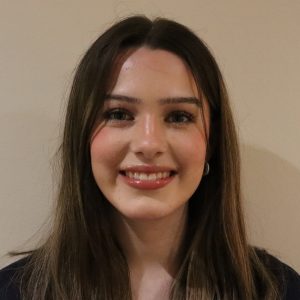The way children understand the world is being shaped by what they see online. They have access to news and entertainment and social networks that can expand their opportunities in really positive ways – but many children tell me that this increased connectivity is actually making them feel more isolated.
Since becoming Children’s Commissioner my research has show that their increasingly widespread access to extreme and violent pornography is affecting how children understand sex, relationships and their own identity.
That’s something I spoke at length about in my recent interview with the Naked Truth Project for their P Word Series, six documentary episodes featuring different perspectives and voices on this rapidly evolving topic. The episode featuring my interview goes live today, where I spoke to presenter Ian Henderson about the things children have told me about seeing pornography, the way it has been normalised in their lives, the concerning ways it affects them and what we can do to stop it.
I was clear: the answers aren’t always easy, but we all have a duty to keeping children safe online. While everyone has a role to play in this fight, some of the biggest players, who have a legal and moral obligation to protect children, are the ones who must lead by example and be held accountable when they fail.
In the P Word Talks I spoke of the need for high-quality, age-appropriate Relationship, Sex and Health Education (RSHE) that starts early and evolves as children mature. RSHE isn’t just about the facts of sex, but teaches empathy, respect and critical thinking that helps young people understand what they are seeing and why it is harmful. Without it, we risk young people learning about sex from TikTok, Snapchat or porn sites.
Parents must play a critical role too. It can be overwhelming for parents – most of whom won’t have grown up with the internet access their children have. Often, we underestimate just how much content is available to our children, without them even having to search for it. Certainly, most parents cannot fathom the extreme versions of this content – children have told me about seeing beheadings, violent sex, criminal behaviour, all on ‘mainstream’ platforms. Parental controls are not enough to counter this in isolation – the tech is advancing quickly.
The most important message I give parents is to talk to their children. No topic can be too awkward. Children tell me they want their parents to set clear boundaries and to talk to them openly and regularly about what they are seeing – what it means, and why it’s not real. To help with these conversation, I’ll be creating an updated guide for parents later this year setting out what children what them to know.
But the biggest responsibility must fall to tech companies – they are failing our children by putting profits above all else. Time and time again they will tell the public about the safety features on platforms and how users can report and block harmful content, but children tell me this often is not their experience. I want platforms to step up and make it impossible for a child on their site to stumble across harmful content – not put the onus on the child to report only once the harm has occurred.
Last month I hosted a roundtable with representatives from some of the biggest tech firms operating in England. I was assured that no child is able to see pornography on their platforms – but my Young Ambassadors told them this was not the case.
Children’s online experiences are shaped by the platforms they use – and too often, these platforms are not safe. As I stressed in the roundtable with the tech firms, I want to see platforms that are safe by design, with algorithms which do not promote harmful or extreme content, clear reporting tools that children can trust – where swift action is taken when they use them, and stronger age verification and enforcement to protect younger children.
Immediate steps could – and should – also include banning harmful and unnecessary tools like ‘nudifying’ apps, which serve no constructive purpose. Girls have told me they are frightened about even being online, because the ease with which someone can fake a sexually explicit image of them is terrifying.
Ofcom’s Children’s Code was an important step forward, but it isn’t yet strong enough. It has been written for tech companies, not children. The Online Safety Act needs to be transformative – and that means greater accountability, swifter responses, and future proofing a strengthened Children’s Code against the speed at which technology, and particularly Artificial Intelligence, is developing.
The first episode of P Word Talks featuring the Children’s Commissioner is available to watch on YouTube and Spotify.






